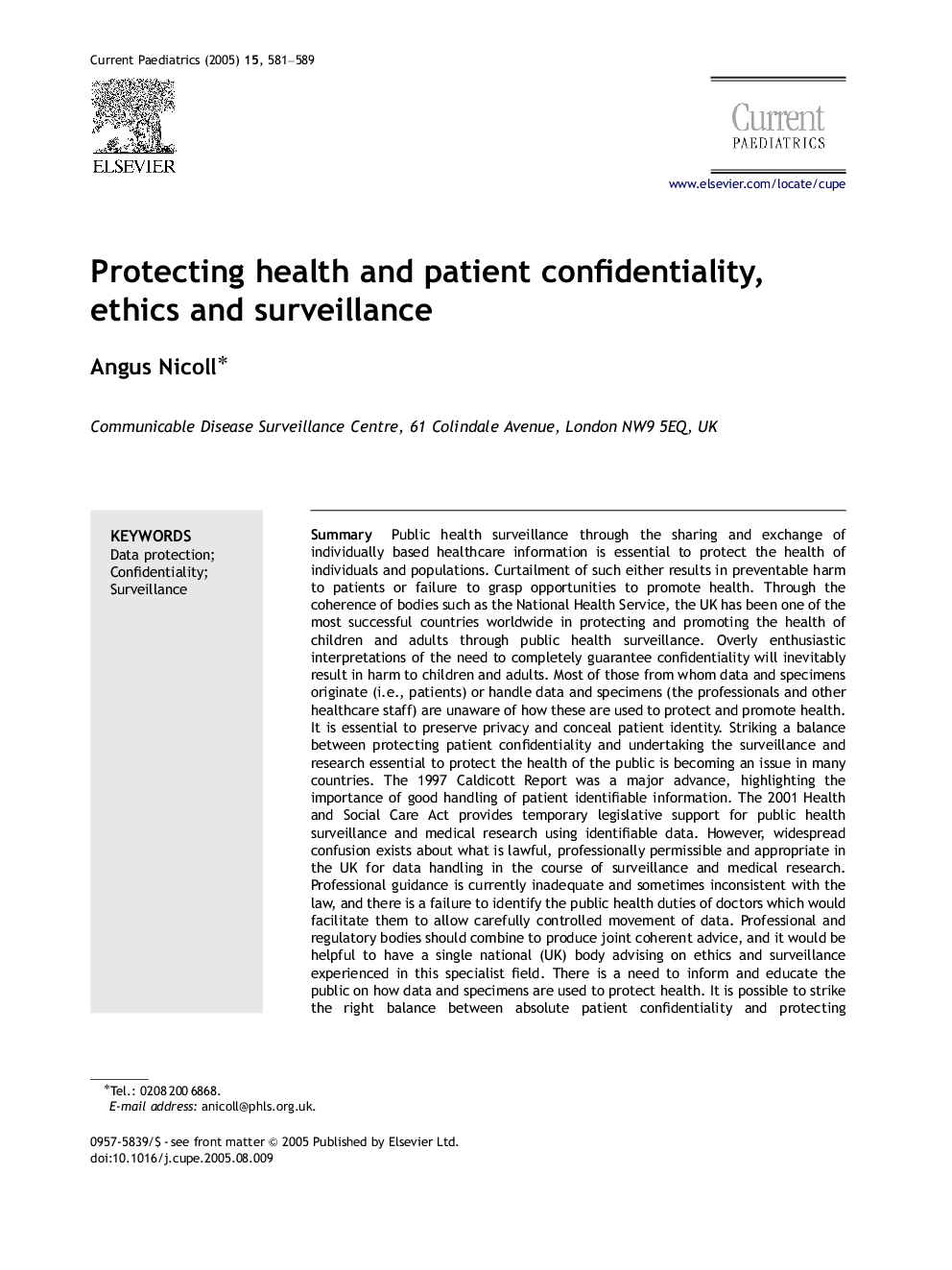| Article ID | Journal | Published Year | Pages | File Type |
|---|---|---|---|---|
| 9372218 | Current Paediatrics | 2005 | 9 Pages |
Abstract
Public health surveillance through the sharing and exchange of individually based healthcare information is essential to protect the health of individuals and populations. Curtailment of such either results in preventable harm to patients or failure to grasp opportunities to promote health. Through the coherence of bodies such as the National Health Service, the UK has been one of the most successful countries worldwide in protecting and promoting the health of children and adults through public health surveillance. Overly enthusiastic interpretations of the need to completely guarantee confidentiality will inevitably result in harm to children and adults. Most of those from whom data and specimens originate (i.e., patients) or handle data and specimens (the professionals and other healthcare staff) are unaware of how these are used to protect and promote health. It is essential to preserve privacy and conceal patient identity. Striking a balance between protecting patient confidentiality and undertaking the surveillance and research essential to protect the health of the public is becoming an issue in many countries. The 1997 Caldicott Report was a major advance, highlighting the importance of good handling of patient identifiable information. The 2001 Health and Social Care Act provides temporary legislative support for public health surveillance and medical research using identifiable data. However, widespread confusion exists about what is lawful, professionally permissible and appropriate in the UK for data handling in the course of surveillance and medical research. Professional guidance is currently inadequate and sometimes inconsistent with the law, and there is a failure to identify the public health duties of doctors which would facilitate them to allow carefully controlled movement of data. Professional and regulatory bodies should combine to produce joint coherent advice, and it would be helpful to have a single national (UK) body advising on ethics and surveillance experienced in this specialist field. There is a need to inform and educate the public on how data and specimens are used to protect health. It is possible to strike the right balance between absolute patient confidentiality and protecting individuals' health. To do this new legislation may be required, but this should follow public and professional debate, a settled consensus and leadership from the Departments of Health and National Health Service.
Related Topics
Health Sciences
Medicine and Dentistry
Perinatology, Pediatrics and Child Health
Authors
Angus Nicoll,
